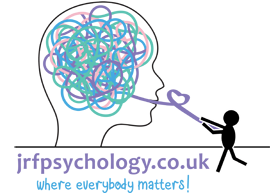Therapy and Counselling for Anxiety
Experiencing anxiety can make you imagine things are much worse than they are in reality. This may stop you from doing your daily tasks, interacting with your loved ones and or work colleagues or people in general. In extreme cases it can make it very hard for you to leave the house.
When you are experiencing stress it is absolutely normal for you to experience a ‘fight or flight’ response. In days gone by our ancestors would have used this as an internal alarm system to protect us from danger. Although, thankfully, we no longer have to fight wild animals those responses are still there and are activated when we feel threatened; this my be a real or perceived threat. A real threat may be something/someone is actually trying to harm us. However, a perceived threat is when we feel under threat but there is no actual threat. But where does a perceived threat come from? Although we are all have unique personal histories it may be:
- you have learnt to be anxious: For e.g. have you heard the phrase “don’t walk under that ladder you’ll have bad luck” or “Friday the 13th”. Whilst these may appear, and provoke, mild anxieties they are there none-the-less. In such cases it’s not uncommon for people to avoid walking under a ladder and not doing important things on Friday the 13th. However, this can keep the anxiety alive because you never actually test your theory!
- an actual event such as a road traffic accident: whilst the accident may have passed some people are affected many years after. This may be when another event that is current reminds them, often unconsciously, of the original event that was never dealt with.
- you have been the subject of abuse (physical/sexual/psychological/emotional/financial) and your mind and body perceive that you are still under threat.
- Smartphone addiction (colloquially known as 'nomophobia') where we fear being without/access to our mobile phone 24/7. This addiction can encompass addictions to 'virtual relationships' (to the extent that these can become more important that real-life relationships and ignoring/not being aware of our closest relationships; 'information overload' (may lead to overthinking daily situations potentially leading to phobias; 'online compulsions' such as gambling/shopping (may lead to financial and employment related problems.
Common anxiety symptoms:
- feeling nervous or on edge
- unable to control worrying thoughts or worrying too much about things
- difficulty relaxing
- being restless and unable to sit still
- being annoyed or irritable
- feeling something bad will happen
Common anxiety presentations:
Generalised anxiety disorder:
Feeling anxious and fearful but not about a specific event or experience.
Phobias:
Fearing, or feeling threatened, for e.g. about a certain situation and/or person/people. For some even thinking about the situation can be anxiety provoking and you may avoid thinking/discussing the situation to prevent the anxiety.
Panic disorder:
you my experiencing what appears to be an ‘unpredictable panic attack’ with symptoms such as shortness of breath, feeling faint and trembling.
Obsessive compulsive disorder (OCD):
this is usually where you have obsessional thoughts which lead to you carrying out certain rituals and can be quite exhaustive to you. The thoughts may make you feel quite anxious and you cannot rest until you have carried out your compulsive urges which you feel you need to repeat.
Post-traumatic stress disorder (PTSD):
This may occur after experiencing, witnessing or learning about a traumatic event. You may experience nightmares and/or disturbing dreams as well as other symptoms. These reactions can make you feel like you’re reliving the fear and anxiety over and over again.








